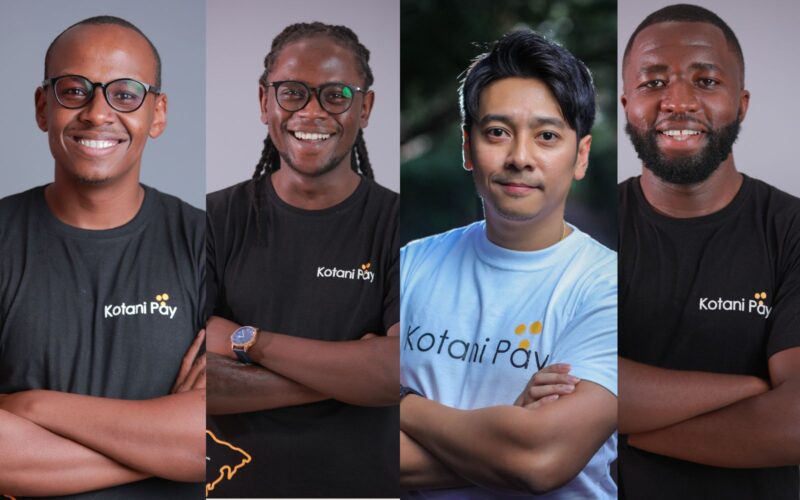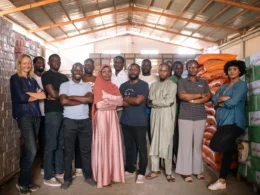Kenya’s Kotani Pay, a leading on-ramp/off-ramp infrastructure connecting Web3 users to local payment channels across Africa, has secured strategic funding from Tether, one of the largest companies in the digital asset industry. This investment marks a significant milestone in expanding blockchain-based financial services across the African continent.
Bridging Africa to the Global Blockchain Economy
Kotani Pay’s infrastructure serves as a critical bridge between blockchain protocols and local payment channels, enabling seamless transactions across Africa’s diverse financial landscape. By leveraging blockchain technology, the platform enables enterprises to manage international operations efficiently, offering businesses and individuals practical solutions to access global liquidity and transact with ease.
The startup’s mission aligns perfectly with the broader goals of Tether, which aims to expand blockchain use cases such as cross-border payments and digital asset management. Both companies share a vision of providing extensive access to financial tools and creating systems that empower underserved communities to participate in the global economy.
Addressing Critical Challenges in Emerging Markets
The strategic investment from Tether will make access to digital assets and cross-border payment systems seamless, addressing long-standing challenges faced by SMEs and corporates in emerging markets. These challenges include:
- High transaction costs that eat into profit margins
- Long settlement times that delay business operations
- Limited access to global financial networks that restrict growth opportunities
According to World Bank data on remittances, the average cost of sending money to Sub-Saharan Africa remains around 7.9%, significantly higher than the global average. Blockchain-powered solutions like Kotani Pay aim to dramatically reduce these costs while improving transaction speed and reliability.
Businesses and individuals previously excluded from the international financial system will gain direct access to the global economy, supported by blockchain-powered solutions that deliver stability, security, and efficiency. This is particularly crucial in Africa, where financial inclusion remains a challenge despite the continent’s rapid mobile money adoption.
Leadership Vision for Financial Inclusion
“At Kotani Pay, we have been fortunate to witness and build on the rising usage of blockchain technology on the continent across a variety of use cases,” said Felix Macharia, CEO and co-founder at Kotani Pay. “This strategic investment from Tether better positions us to continue our work as a bridge to the on-chain economy, connecting millions of Africans to the global financial system. We are excited to be part of the Tether Ecosystem and to leverage the shared knowledge to advance the goals of building tools of wealth creation for African individuals and businesses.”
Macharia’s vision reflects a growing trend in African fintech innovation, where local solutions are being developed to address continent-specific challenges while connecting to global systems.
Building on Previous Success
The startup previously received grant funding from the UNICEF Venture Fund, which supports early-stage ventures in solving local and global challenges. This track record of securing support from reputable organizations demonstrates Kotani Pay’s proven potential and strategic importance in the African fintech ecosystem.
The UNICEF backing positioned Kotani Pay among a select group of impact-driven technology companies working to create sustainable solutions for underserved markets. Now, with Tether’s strategic investment, the company is poised to scale its operations significantly.
Tether’s Commitment to African Markets
Paolo Ardoino, CEO of Tether, emphasized the strategic importance of this partnership: “At Tether, we believe that blockchain technology plays a critical role in unlocking financial freedom. Kotani Pay’s vision and strong regional presence make it the right fit to drive our shared goals in Africa and beyond. Together, we aim to empower enterprises and individuals to access digital assets for their global operations, reduce friction in cross-border transactions, and build a more inclusive financial future while promoting the informed use of digital assets.”
This investment aligns with Tether’s broader strategy of expanding into emerging markets, where demand for stable digital assets and efficient payment systems continues to grow. As the issuer of USDT, the world’s largest stablecoin by market capitalization, Tether brings significant expertise and resources to the partnership.
The Growing African Blockchain Ecosystem
Kotani Pay’s success story is part of a larger narrative of African blockchain adoption. The continent has emerged as a hotbed for cryptocurrency and blockchain innovation, driven by factors including:
- High mobile penetration rates
- Young, tech-savvy population
- Need for alternative financial infrastructure
- Growing cross-border trade within the continent
According to Chainalysis research, Africa has seen significant growth in cryptocurrency adoption, with many users turning to digital assets for remittances, savings, and business transactions. Platforms like Kotani Pay are essential infrastructure enabling this adoption by connecting blockchain protocols to familiar local payment methods.
How Kotani Pay Works
Kotani Pay’s infrastructure allows users to convert between digital assets and local currencies without needing a bank account or extensive technical knowledge. The platform integrates with popular African payment systems like M-Pesa, making blockchain technology accessible to millions who already use mobile money.
This approach democratizes access to Web3 technologies by meeting users where they are, rather than requiring them to navigate complex cryptocurrency exchanges or wallet systems. For businesses, this means the ability to accept crypto payments and settle in local currency, or vice versa, with minimal friction.
Impact on SMEs and Cross-Border Trade
Small and medium enterprises (SMEs) stand to benefit significantly from Kotani Pay’s infrastructure. According to the African Development Bank, SMEs contribute approximately 90% of businesses and more than 50% of employment in Africa, yet they often struggle with access to financial services and cross-border payment solutions.
By providing affordable, fast, and reliable payment infrastructure, Kotani Pay enables African businesses to:
- Accept international payments without expensive intermediaries
- Pay suppliers across borders with reduced fees
- Access working capital through decentralized finance protocols
- Hedge against local currency volatility using stablecoins
The Future of Financial Inclusion in Africa
The partnership between Kotani Pay and Tether represents more than just a funding announcement; it signals a shift toward practical, infrastructure-focused solutions in the African fintech space. Rather than building isolated applications, companies are creating the foundational layers that will enable the next generation of financial innovation.
As blockchain technology matures and regulatory frameworks evolve, platforms like Kotani Pay will play an increasingly important role in connecting African economies to global financial systems. The focus on real-world utility, rather than speculation, demonstrates the technology’s potential to create lasting economic impact.
What This Means for African Tech
For the broader African startup ecosystem, Kotani Pay’s success in attracting strategic investment from a global leader like Tether validates the continent’s position as an important market for blockchain innovation. It also demonstrates that African startups solving local problems with global technologies can attract world-class investors and partners.
The investment could catalyze further blockchain adoption across the continent, as businesses and individuals gain confidence in the technology’s practical applications. As more infrastructure providers emerge and mature, Africa may well become a blueprint for how blockchain can drive financial inclusion in emerging markets worldwide.













Comments 1